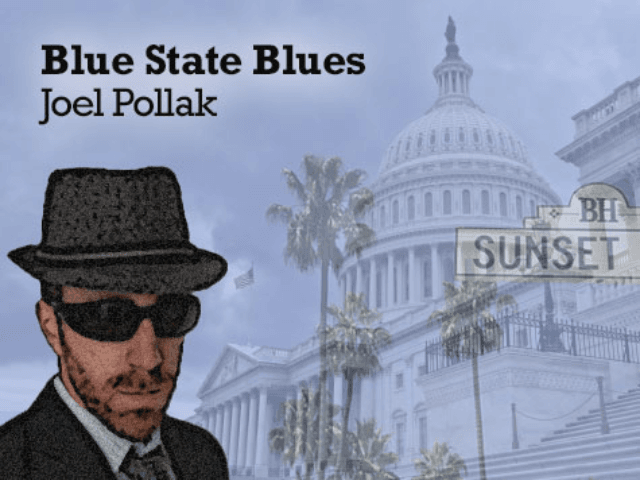Former President George W. Bush emerged from retirement on Thursday to stage a broad attack on President Donald Trump and the movement that supports him.
Without mentioning Trump by name, Bush accused him of “casual cruelty” in political discourse, of distorting nationalism into “nativism,” and of emboldening bigotry and white supremacy. He called for a renewed commitment to American global leadership and domestic citizenship.
It was a call to national unity — against Trump and his supporters, who were reduced to labels and caricatures: “protectionism,” “isolationist sentiments,” and the like.
“Too often, we judge other groups by their worst examples while judging ourselves by our best intentions – forgetting the image of God we should see in each other,” he said. Yet Bust did exactly that, dwelling on “[b]ullying and prejudice in our public life,” clearly a reference to Trump.
One wonders where George W. Bush was when Barack Obama was picking on police officers, telling Latino voters to “punish” their “enemies,” or tearing up the Constitution. For eight years, Barack Obama pursued an aggressive, Alinskyite style of politics, deliberately exacerbating partisan and social divisions to mobilize his core voter base. He demonized his opponents, at one stage claiming we were “making common cause” with Iran’s mad ayatollahs.
In fact, one wonders where George W. Bush was during his own presidency, which is when the coarsening of our politics began in earnest. Many Democrats refused to accept the legitimacy of the 2000 election, and treated him as if he had carried out a coup. The anti-war left likened him to Hitler and fantasized about his assassination. “Bush lied, people died,” they said of the Iraq War. It was false, but the Bush administration barely bothered to push back.
The timing of Bush’s speech is curious, coming as the Republican establishment faces a determined assault from Breitbart News executive chairman Steve Bannon, who is backing primary challengers in the 2018 election. Bush’s remarks come just days after establishment favorite Sen. John McCain (R-AZ) launched a similar attack on Trump’s “spurious nationalism,” even saying those who held such views were as “unpatriotic” as fascists or communists.
Suddenly, we are warned that American democracy is in crisis, simply because the Republican establishment faces a threat at the ballot box, and the abdication of its donors. Bush declared, without irony: “Our governing class has often been paralyzed in the face of obvious and pressing needs.” It was not an admission, but an accusation — coming from a man whose family has been at the pinnacle of that unresponsive governing class for many decades.
At the core, there is a genuine and legitimate debate between Bushism and Trumpism. That debate is clearest on the issue of immigration. Bush’s approach emphasizes the benefits of immigration and ignores many of the challenges, including the problem of illegal immigration (which skyrocketed during Bush’s presidency). Trump welcomes legal immigrants but wants to focus on skilled immigration, while removing illegal aliens and building a border wall.
On foreign policy, Bush came into office promising to avoid “nation-building” abroad, much as Trump has done. But he adopted an interventionist approach after the terror attacks of 9/11. At first, the “Bush Doctrine” stated that the U.S. had the right to attack countries that sheltered terrorists. Later, it expanded to include the idea that the U.S. should spread democracy throughout the world, arguing democratic societies were less likely to support terrorism.
Trump has been contemptuous of that approach, which he says led the U.S. into costly foreign wars in Iraq and elsewhere. He wants to increase the size and power of the U.S. military, but with a view to deterring rivals rather than carrying out regime change abroad. And he is more skeptical of international institutions (though, to be sure, Bush went to war in Iraq in 2003 without the United Nations’ backing, and with a “coalition of the willing” instead).
Economically, Bush is Wall Street, while Trump is Main Street. Bush argued Thursday that “we can’t wish globalization away,” and that the “strength of free societies is their ability to adapt to economic and social disruptions” necessary to achieve broad prosperity. Trump represents the reaction against those “disruptions” by those who were their primary victims. Bush sought free trade agreements; Trump seeks to renegotiate them.
These are all serious issues, worthy of debate. But Bush did not offer any serious engagement of the ideas of the other side, which he simply marginalized through name-calling. Nor did Bush talk about the constant assault on American values from the left — the desecration of the national anthem, the tearing down of historical statues, the rejection of the outcome of a free and fair democratic election. These are the real threats to national unity.
“I’m a uniter, not a divider,” Bush said in 2000. Yet on Thursday, he sought no common ground with Trump and his supporters. It was a call to political arms against a Republican president with no attempt to embrace or understand the voters who put him into office.
The media were delighted by the speech, as were NeverTrumpers who want to primary Trump in 2020. But it will be remembered as the petulant protest of an establishment that continues to fail.
Joel B. Pollak is Senior Editor-at-Large at Breitbart News. He was named one of the “most influential” people in news media in 2016. He is the co-author of How Trump Won: The Inside Story of a Revolution, is available from Regnery. Follow him on Twitter at @joelpollak.

COMMENTS
Please let us know if you're having issues with commenting.